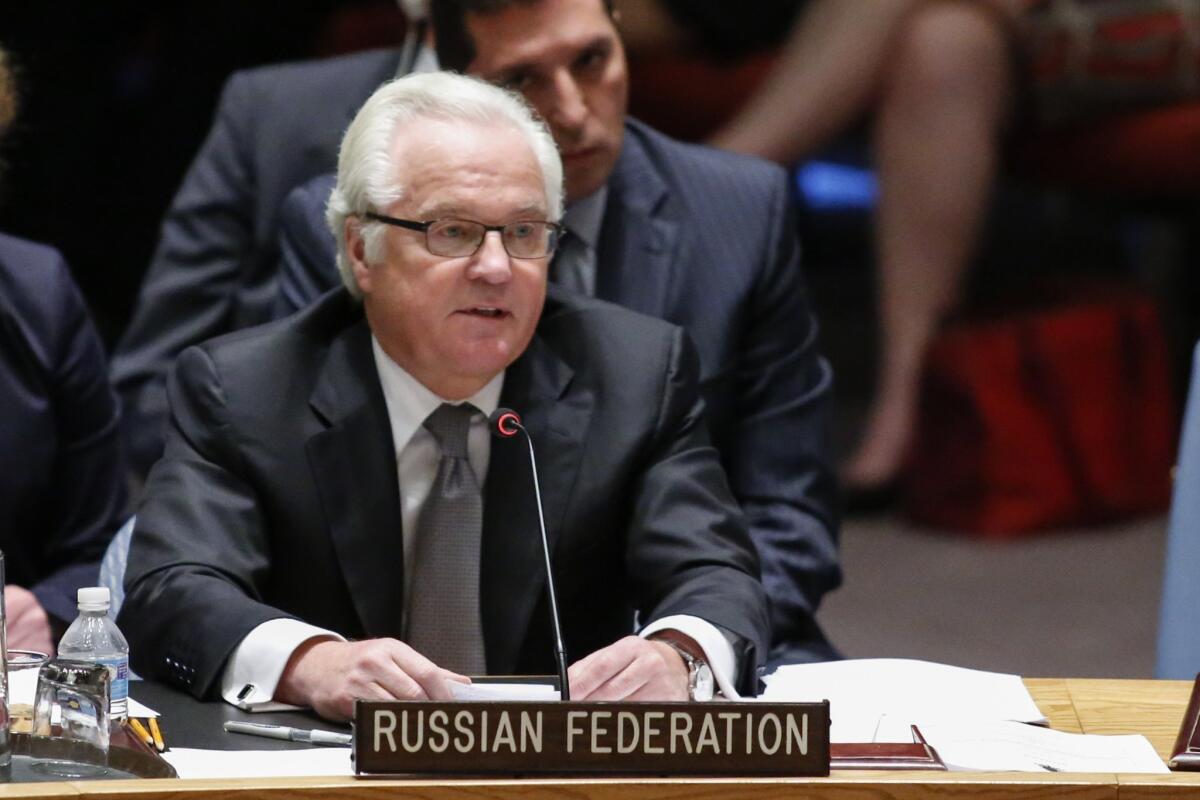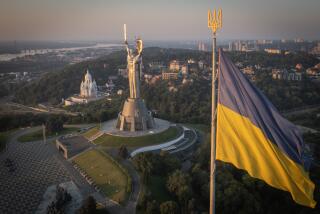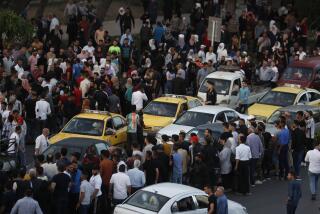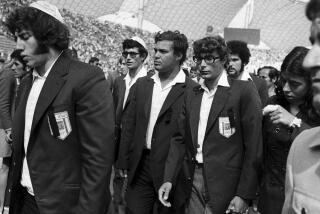New U.N. probe of Syrian chemical weapons use to name perpetrators

Russia’s ambassador to the U.N., Vitaly Churkin, shown here during a Security Council session in July, signaled Sept. 10 that the Kremlin has dropped its objections to an investigation aimed at identifying the perpetrators of chemical weapons attacks in Syria.
Russia has backed off objections to a United Nations probe to determine who carried out chemical weapons attacks in Syria, allowing the Security Council to create a new investigative unit on Thursday empowered to assign blame.
The Kremlin has previously used or threatened to use its veto power as a permanent member of the Security Council to limit investigation of deadly chlorine and sarin gas attacks in Syria’s civil war to confirming that they occurred without identifying the perpetrators.
Russia holds the Security Council’s rotating presidency for September, and its U.N. ambassador, Vitaly Churkin, delivered a letter to Secretary-General Ban Ki-moon on Thursday in support of creating a joint investigative unit with the U.N.-affiliated international toxic weapons watchdog, the Organization for the Prohibition of Chemical Weapons.
Creation of an independent panel tasked with determining who or what forces used banned chemical weapons in Syria had been proposed before but blocked by Russia. The country is one of Syrian President Bashar Assad’s few allies, and the Kremlin is thought to have objected to the effort to name those responsible for fear the investigation would lead to Assad.
Western leaders and Syrian opposition commanders have contended that all signs point to the Syrian president as having ordered the use of the banned chemical agents, including an Aug. 21, 2013, sarin gas attack on Damascus suburbs that left 1,400 dead. The Syrian government denies the accusations and blames rebel forces for the attacks.
More recent incidents of chlorine gas being air-dropped in “barrel bombs” behind rebel lines also impugn Assad’s forces, as they are the only combatants with an air force.
Russia may have relented because the costs of backing Assad have become heavier as the Syrian regime has suffered major setbacks on the battlefield in recent weeks, and Kremlin support for the government has thwarted Russian efforts to broker peace talks to end the conflict.
Turkish President Recep Tayyip Erdogan recently told journalists after a meeting with Russian President Vladimir Putin that he had the impression the Kremlin leader is no longer committed to protecting Assad at all costs.
Russia has struggled since the breakup of the Soviet Union to contain Islamic extremism in its Caucasus region, where thousands of Chechens and others from predominantly Muslim ethnic groups have joined forces with the Islamic State militants sowing terror in Syria and Iraq. Battle-hardened fighters returning to Russia from Islamic State’s ranks have in turn escalated attacks on Russian forces in the restive Caucasus regions.
Russia had been expected to repeat objections to fault-finding by the new investigative panel authorized by an Aug. 7 Security Council vote.
But Churkin delivered his letter backing the operation shortly after the deadline for revisions expired Thursday.
U.N. disarmament chief Kim Won-soo said the unit would be operational within a few weeks and that its first report should be issued by the end of the year.
Follow @cjwilliamslat for the latest international news 24/7
More to Read
Sign up for Essential California
The most important California stories and recommendations in your inbox every morning.
You may occasionally receive promotional content from the Los Angeles Times.











